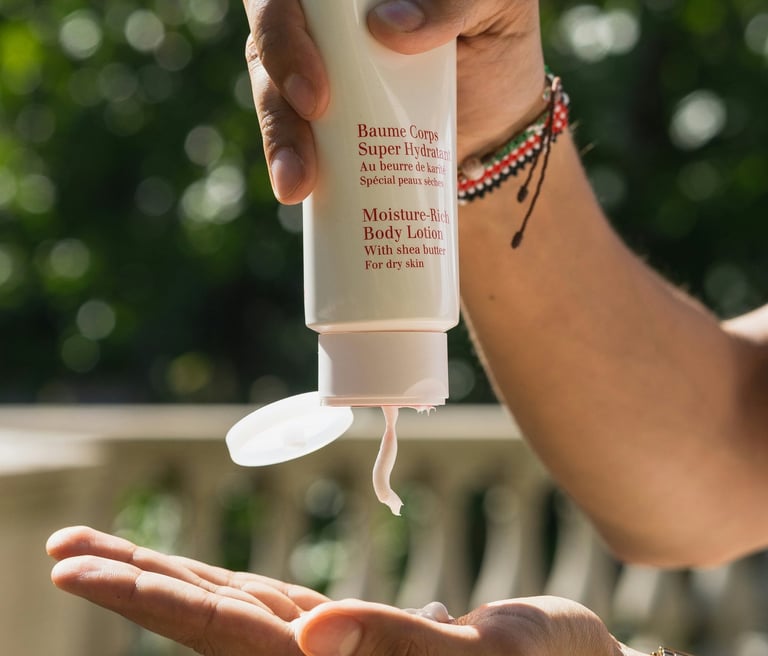Do You Need a Different Moisturizer for Day and Night? (Spoiler: Probably Yes)
If you’ve ever wondered whether you really need two different moisturizers — one for the day and one for the night — you're not alone. It feels kind of extra, right? Like, is it just a marketing thing, or does your skin actually care? Let’s get into it. Because yes, while your skin technically could survive on one moisturizer, there's a reason derms, estheticians, and people with glowy skin swear by switching things up. And no, it doesn’t mean doubling your skincare budget — it’s about being smarter with what you’re using and when.


Why Time of Day Actually Matters in Skincare
Your skin, like your body, follows a circadian rhythm. It's not just there for looks — it’s doing real biological work 24/7.
During the day, it’s all about:
Protection from UV rays, pollution, blue light
Managing oil, sweat, and stress
Keeping hydration in while fighting off irritants
At night, your skin switches to:
Repair mode (hello, cell regeneration)
Barrier rebuilding
Maximum absorption of actives
That’s why it makes sense to support your skin's rhythm with different formulas tailored to those needs. Think of it like dressing for the weather — sunscreen in the day, cozy hoodie at night.
What Makes a Good Daytime Moisturizer?
Your morning moisturizer should be like a good friend on a Monday morning: calm, dependable, and drama-free. It needs to hydrate, sink in quickly, and play nicely with sunscreen and makeup (if you wear any).
Key features of a daytime moisturizer:
Lightweight texture (gel, lotion, gel-cream)
Fast-absorbing, non-greasy
Layers well under SPF and makeup
Contains antioxidants (bonus points)
🌞 Try: this oil-free gel cream packed with glycerin and green tea
Why antioxidants? Because they neutralize free radicals caused by UV rays and pollution. That’s skin speak for “slows down aging and inflammation.”
Some great antioxidant ingredients to look for:
Vitamin C
Niacinamide
Green tea extract
CoQ10
And no, your moisturizer doesn’t need to have SPF — but if it does, make sure it’s at least SPF 30 and broad spectrum. Otherwise, layer your sunscreen on top.
🌞 Try: this all-in-one day moisturizer with SPF 30 and a barely-there finish
What About Nighttime Moisturizers?
Your night cream? That’s where you bring in the big guns. No makeup, no sunscreen, no interruptions — just deep hydration and barrier love.
At night, your skin is more permeable, which means it absorbs ingredients more efficiently. So you want a moisturizer that:
Replenishes moisture loss
Repairs damage from the day
Strengthens your skin barrier
Soothes irritation
Look for:
Ceramides
Fatty acids
Peptides
Squalane
Oat extract
Panthenol
🛌 Try: this barrier-repair cream with ceramides and colloidal oatmeal
If your skin is on the dry or sensitive side, you’ll love a richer formula. But even oily skin can benefit from a nourishing night cream — just go for a non-comedogenic, lightweight option.
🛌 Try: this non-clogging balm that locks in hydration and repairs overnight
What If You Use Actives at Night?
Here’s where things get interesting. If you’re using things like:
Retinol or retinal
Acids (AHAs/BHAs)
Azelaic acid
Prescription treatments
…then your night moisturizer becomes extra important. It should soothe, buffer irritation, and help restore your barrier.
💤 Try: this gentle night cream that pairs well with retinoids and helps reduce flaking
The Case for One Moisturizer (If You Must)
Look, if you’re minimalist, traveling, or just not ready to commit — you can use one moisturizer for both morning and night. Just make sure:
It’s not too heavy for daytime
It doesn’t contain strong actives (like retinol)
You always layer SPF on top in the AM
Multitasking moisturizers exist and are great for simplifying. But they won’t give you the targeted benefits that a separate day/night routine can.
🧴 Try: this versatile gel-cream with niacinamide — works in both AM and PM
Can You Use Your Night Cream During the Day?
Technically? Yes. Will it feel good? Maybe not.
Night creams are usually heavier and more occlusive, which can:
Make your skin look greasy
Cause makeup to slide off
Feel too thick under SPF
But if you're staying in, skipping sunscreen, or it's winter and your skin is screaming for hydration — go for it.
Real Talk: How to Choose the Right Duo
Start with your skin type:
Dry skin: You’ll probably need a cream both AM and PM. Maybe even a balm at night.
Oily skin: Go with a lightweight gel in the day and a balancing lotion or gel-cream at night.
Combo skin: Mix and match! Gel in the morning, creamier product at night.
Sensitive skin: Avoid fragrance, stick to simple formulas, and look for calming ingredients like panthenol, oat, or centella.
🌟 Try: this fragrance-free duo designed for sensitive skin — lightweight by day, cushy at night
Then think about your environment:
Live in a humid place? Lighter textures will be your BFF.
Cold, dry winters? Heavier creams and sleeping masks will save your skin.
Heat + sweat-prone? Oil-free is a must for daytime.
Final Thoughts: Let Your Skin Clock In
Your skin doesn’t sleep on the job — it works 24/7. Supporting it with the right moisturizer at the right time just makes sense. Day creams protect. Night creams repair. That’s the balance.
You don’t need a 10-step routine to glow. Just a few smart swaps — like separating your AM and PM moisturizers — can make a huge difference in hydration, barrier strength, and long-term skin health.
Glow is an Attitude
© 2025. All rights reserved